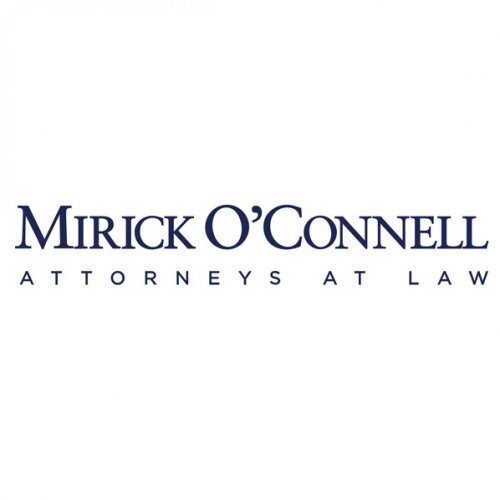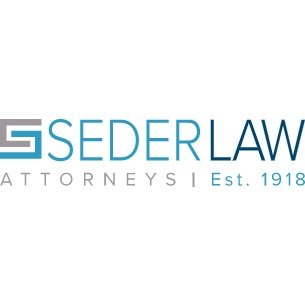Best Antitrust Litigation Lawyers in Massachusetts
Share your needs with us, get contacted by law firms.
Free. Takes 2 min.
Or refine your search by selecting a city:
List of the best lawyers in Massachusetts, United States
About Antitrust Litigation Law in Massachusetts, United States
Antitrust litigation involves legal action related to the enforcement of laws designed to promote fair competition and prevent monopolistic behavior in the marketplace. In Massachusetts, as in the rest of the United States, antitrust laws seek to protect consumers and businesses by addressing anti-competitive practices such as price-fixing, bid-rigging, market allocation, and monopolization. These laws are enforced at both the federal level, primarily through the Sherman Act, Clayton Act, and Federal Trade Commission Act, and at the state level through the Massachusetts Antitrust Act and related state statutes. Individuals, companies, and governmental bodies can all be involved in or affected by antitrust litigation, which can arise in both civil and criminal contexts.
Why You May Need a Lawyer
Antitrust litigation is complex and often high-stakes, involving detailed economic analysis and complex legal frameworks. Here are some common situations where seeking legal help is beneficial:
- If your business is accused of anti-competitive practices by a competitor, consumer, or regulatory authority.
- If you suspect that other businesses are engaging in unlawful activities that harm your business or customers, such as price-fixing or collusion.
- If you are under investigation by state or federal authorities for potential antitrust violations.
- If your company is considering a merger or acquisition that may attract regulatory scrutiny for potential anti-competitive effects.
- If you are a consumer harmed by anti-competitive conduct, such as being subject to inflated prices or restricted choice due to unlawful activity by suppliers.
- If you need guidance on compliance with complex state and federal antitrust regulations while conducting business in Massachusetts.
An experienced antitrust lawyer can help you understand your rights and liabilities, develop a legal strategy, represent you in court or negotiations, and ensure compliance with all applicable laws.
Local Laws Overview
Massachusetts has its own set of antitrust laws that mirror and, in some cases, expand upon federal statutes. The Massachusetts Antitrust Act (Mass. Gen. Laws c. 93) is the primary state law governing anti-competitive behavior. It prohibits activities such as monopolization, contract combinations in restraint of trade, price-fixing, and unfair methods of competition. The Massachusetts Attorney General is empowered to investigate and prosecute violations, and private parties may also bring lawsuits for antitrust damages.
Massachusetts courts consider both state and federal precedents in antitrust cases, often conducting independent analysis of local market dynamics. Penalties for violations can include civil damages, injunctions to prevent ongoing unlawful activity, attorney fees, and even criminal sanctions in egregious cases. Additionally, businesses must consider both state and federal notification requirements for mergers and acquisitions to avoid running afoul of overlapping regulations.
Frequently Asked Questions
What is antitrust litigation?
Antitrust litigation refers to legal disputes arising from claims that businesses or individuals have engaged in unfair competition, such as price-fixing, monopolies, or other activities that restrict trade or harm consumers.
Who enforces antitrust laws in Massachusetts?
Antitrust laws in Massachusetts are enforced by the Massachusetts Attorney General's Office and, at the federal level, by the U.S. Department of Justice Antitrust Division and the Federal Trade Commission. Private parties can also bring civil antitrust lawsuits.
How do I know if I have an antitrust claim?
If you believe you have suffered harm from anti-competitive conduct such as price-fixing, market allocation, or exclusion from a market, you may have grounds for an antitrust claim. Consulting with an attorney who specializes in this area is the best way to determine the strength of your potential case.
What types of conduct are considered antitrust violations?
Typical antitrust violations include price-fixing agreements, rigging bids, dividing territories or customers among competitors, abuse of market dominance, and certain mergers or acquisitions that threaten to reduce market competition.
Are there differences between state and federal antitrust laws?
Yes. While Massachusetts adopts many principles from federal law, the Massachusetts Antitrust Act has unique provisions and remedies. Coordination between state and federal authorities is common, but state law can offer broader protections in some cases.
Can individuals file antitrust lawsuits, or is this limited to the government?
Individuals and businesses who suffer damages from anti-competitive conduct can file private antitrust lawsuits. The government also has the authority to bring cases on behalf of the public interest.
What damages can be recovered in an antitrust lawsuit in Massachusetts?
Plaintiffs may recover actual damages, which are often tripled under the law (treble damages), plus court costs and attorney fees. Courts may also order injunctions to stop continued anti-competitive practices.
How long do I have to file an antitrust lawsuit in Massachusetts?
Massachusetts law generally provides a four-year statute of limitations for civil antitrust claims, though there are exceptions and certain circumstances that may pause or extend the timeline.
What is the typical process for an antitrust lawsuit?
Antitrust litigation usually begins with an investigation, followed by the filing of a complaint. The process involves discovery, legal motions, settlement discussions, and potentially a trial. These cases can be complex and lengthy.
Can my business be investigated for antitrust violations without my knowledge?
While some investigations are public, authorities may conduct confidential investigations and gather evidence before notifying a business of potential violations. If your business is approached by regulators or receives a subpoena, consult legal counsel immediately.
Additional Resources
Those seeking further information or assistance with antitrust issues in Massachusetts can turn to several authoritative resources:
- Massachusetts Attorney General's Office - Antitrust Division
- United States Department of Justice Antitrust Division
- Federal Trade Commission (Bureau of Competition)
- Massachusetts Bar Association (for lawyer referrals)
- Boston Bar Association Antitrust & Business Litigation Section
- Legal services organizations specializing in business and consumer law
These organizations provide guidance, investigation updates, policy statements, and in some cases, consumer complaint processes and referrals.
Next Steps
If you believe you are involved in or affected by an antitrust issue in Massachusetts, consider taking the following steps:
- Document any relevant business communications, agreements, and evidence related to potential antitrust concerns.
- Do not discuss the issue with other parties or competitors without first seeking legal counsel.
- Contact a lawyer with experience in antitrust litigation to evaluate your situation and advise on your options.
- Report potential violations to the Massachusetts Attorney General's Office or relevant federal authorities if appropriate.
- Ensure your business practices comply with current antitrust laws, especially if you are considering a merger or acquisition.
Early legal guidance can help protect your rights and minimize any potential legal liability. A qualified attorney can explain your options, help you navigate investigations or disputes, and provide tailored advice for your unique circumstances.
Lawzana helps you find the best lawyers and law firms in Massachusetts through a curated and pre-screened list of qualified legal professionals. Our platform offers rankings and detailed profiles of attorneys and law firms, allowing you to compare based on practice areas, including Antitrust Litigation, experience, and client feedback.
Each profile includes a description of the firm's areas of practice, client reviews, team members and partners, year of establishment, spoken languages, office locations, contact information, social media presence, and any published articles or resources. Most firms on our platform speak English and are experienced in both local and international legal matters.
Get a quote from top-rated law firms in Massachusetts, United States — quickly, securely, and without unnecessary hassle.
Disclaimer:
The information provided on this page is for general informational purposes only and does not constitute legal advice. While we strive to ensure the accuracy and relevance of the content, legal information may change over time, and interpretations of the law can vary. You should always consult with a qualified legal professional for advice specific to your situation.
We disclaim all liability for actions taken or not taken based on the content of this page. If you believe any information is incorrect or outdated, please contact us, and we will review and update it where appropriate.
Browse antitrust litigation law firms by city in Massachusetts
Refine your search by selecting a city.
















